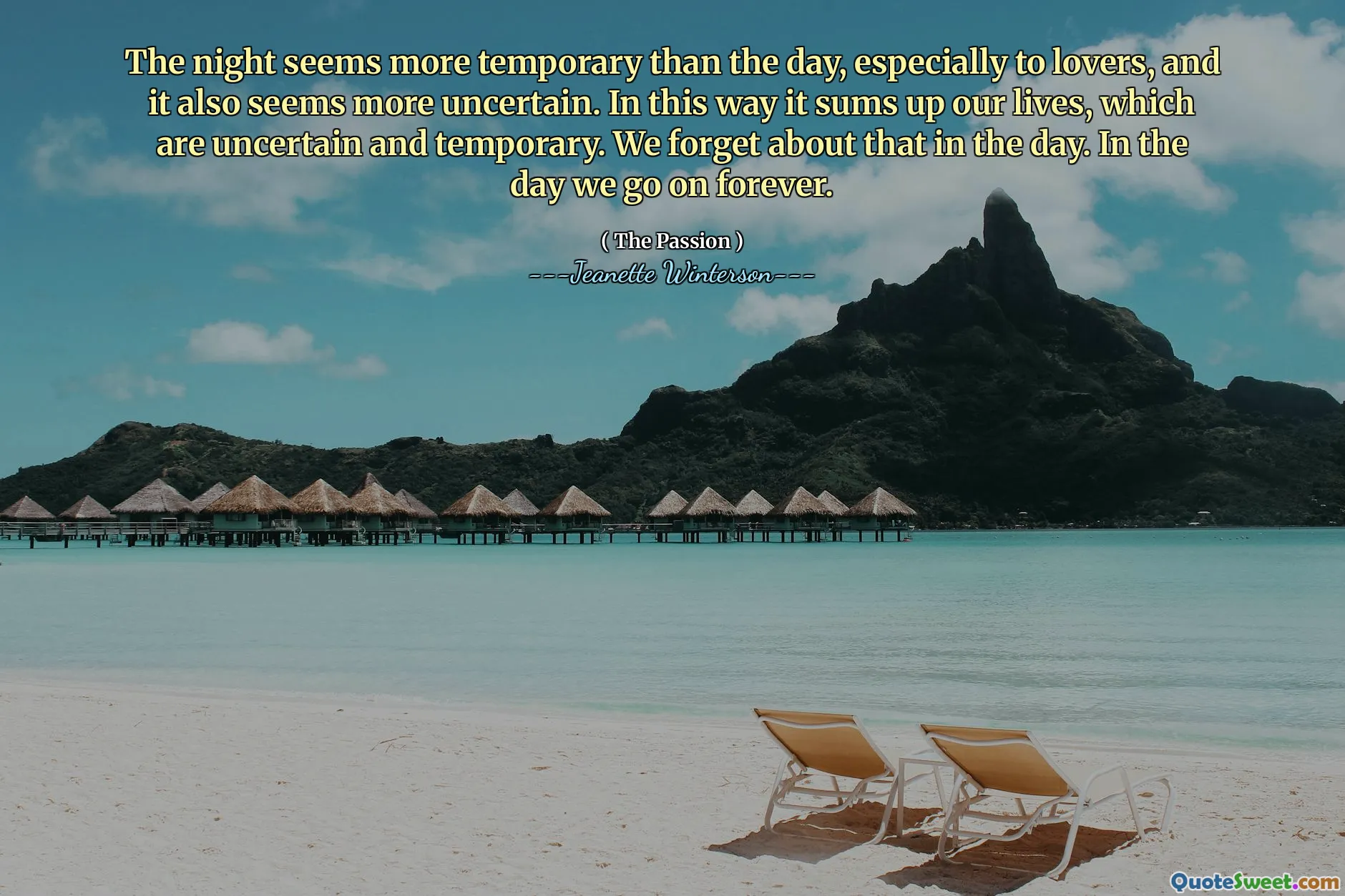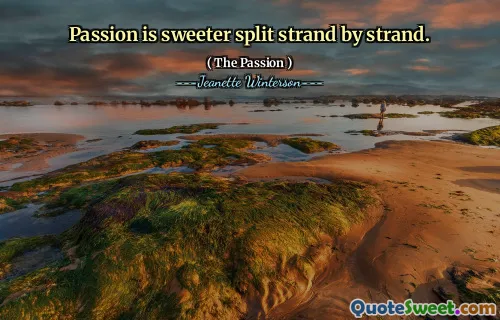
The night seems more temporary than the day, especially to lovers, and it also seems more uncertain. In this way it sums up our lives, which are uncertain and temporary. We forget about that in the day. In the day we go on forever.
This evocative quote beautifully juxtaposes the enigmatic qualities of night and day with the transient nature of human existence. Night, often associated with intimacy, mystery, and reflection, appears fleeting and unpredictable—particularly in the eyes of lovers who cherish its fleeting moments. This fleetingness underscores life's inherent uncertainty; our lives, much like the night, are fragile and ever-changing. Conversely, the day symbolizes stability, tangibility, and the illusion of permanence. During daylight, we become preoccupied with routine, ambition, and achievements, often sweeping aside the deeper reality of life's impermanence. The poet subtly invites us to consider how we tend to forget life's ephemeral essence amidst our daily pursuits, clinging to the illusions of foreverness. The metaphor aligns with human nature; when immersed in activity, we forget mortality and the delicate beauty of transient moments, yet in quiet nights or intimate moments, consciousness of life's brevity naturally surfaces. This reflection encourages a more mindful appreciation of life's fleeting beauty, urging us to embrace the transient with grace instead of denial. Overall, the quote challenges us to reconcile the comforting stories we tell ourselves during the day with the sobering truths revealed beneath the stars—a reminder to cherish each moment for its fleeting perfection.







